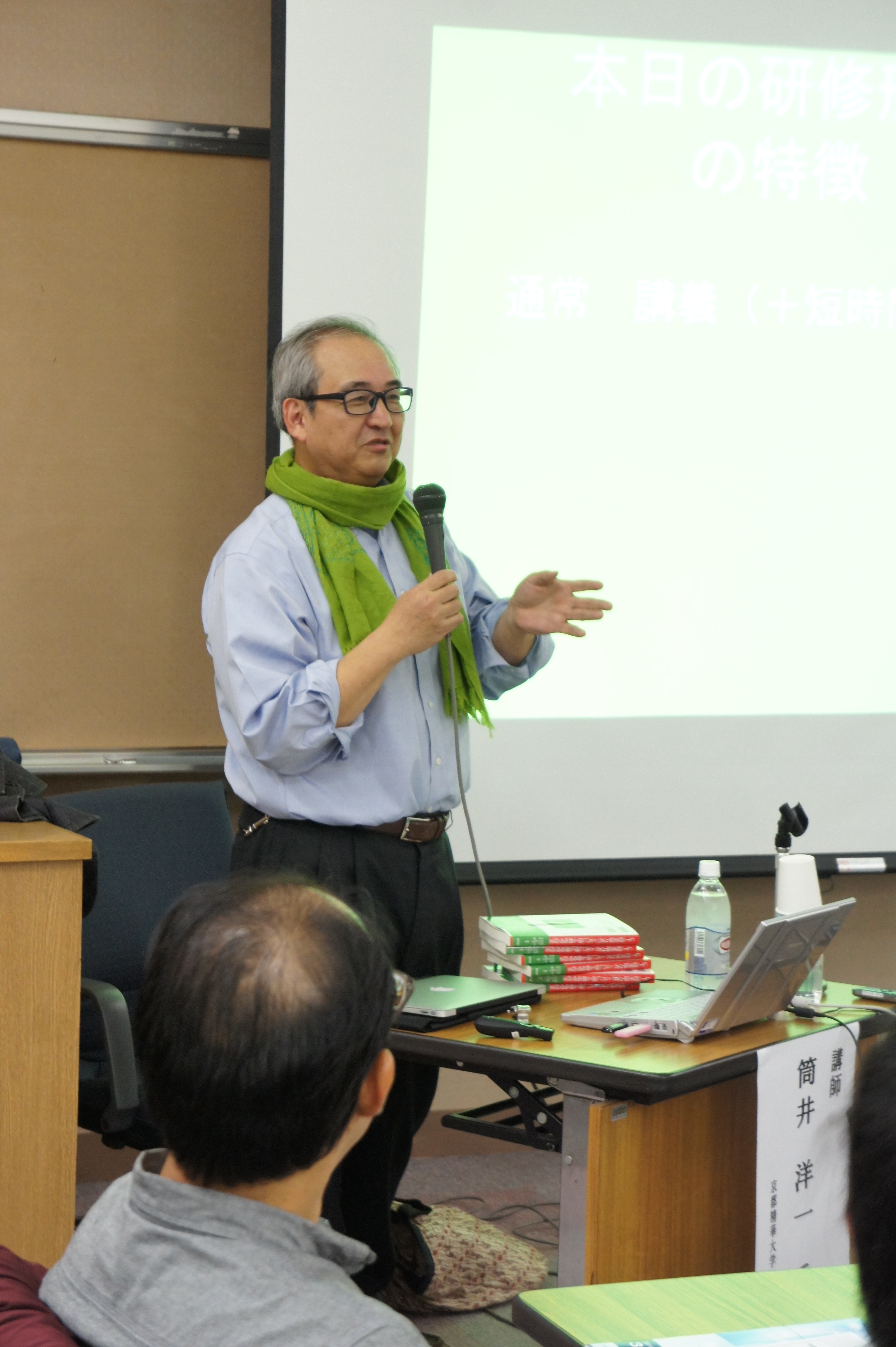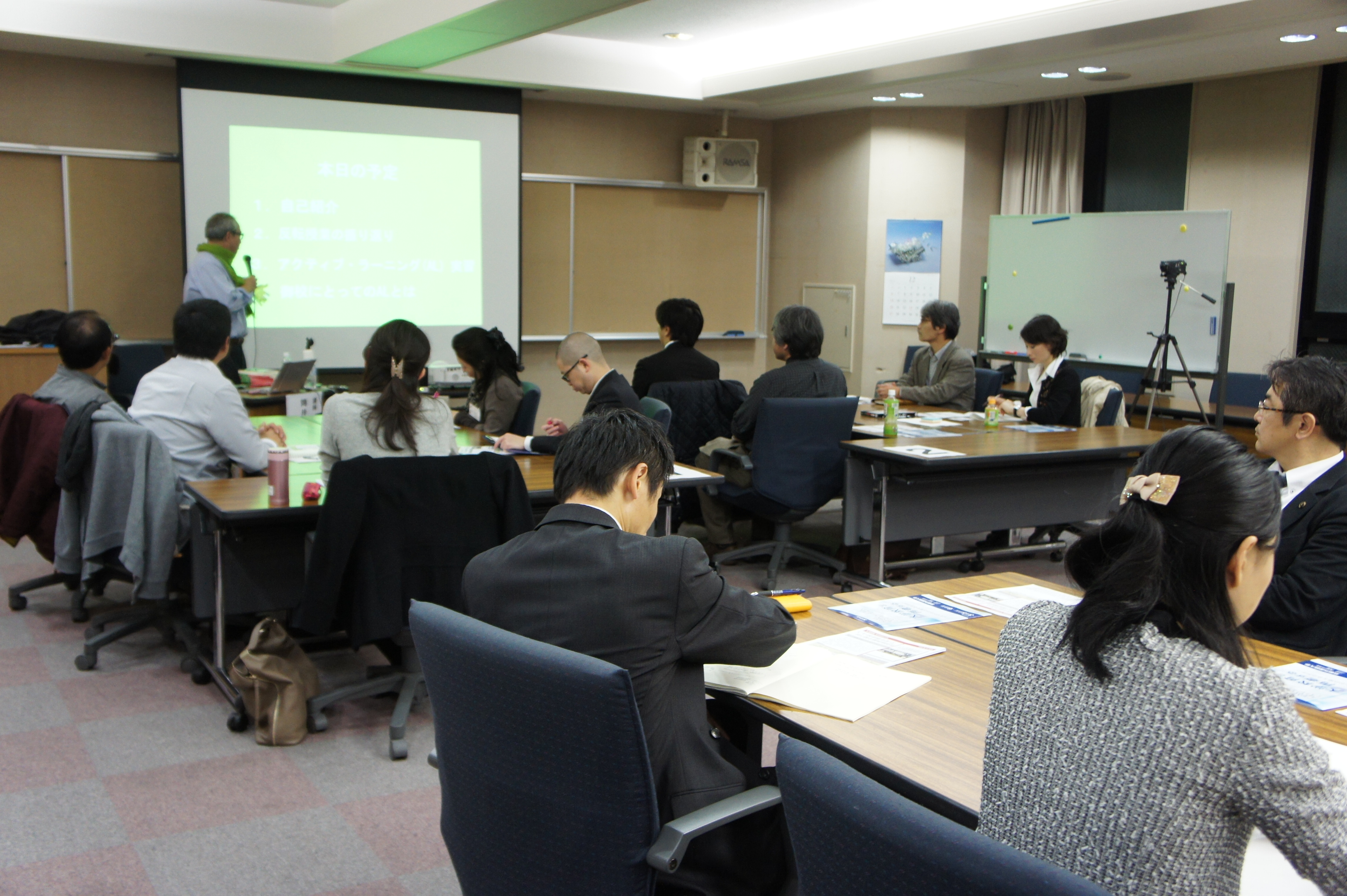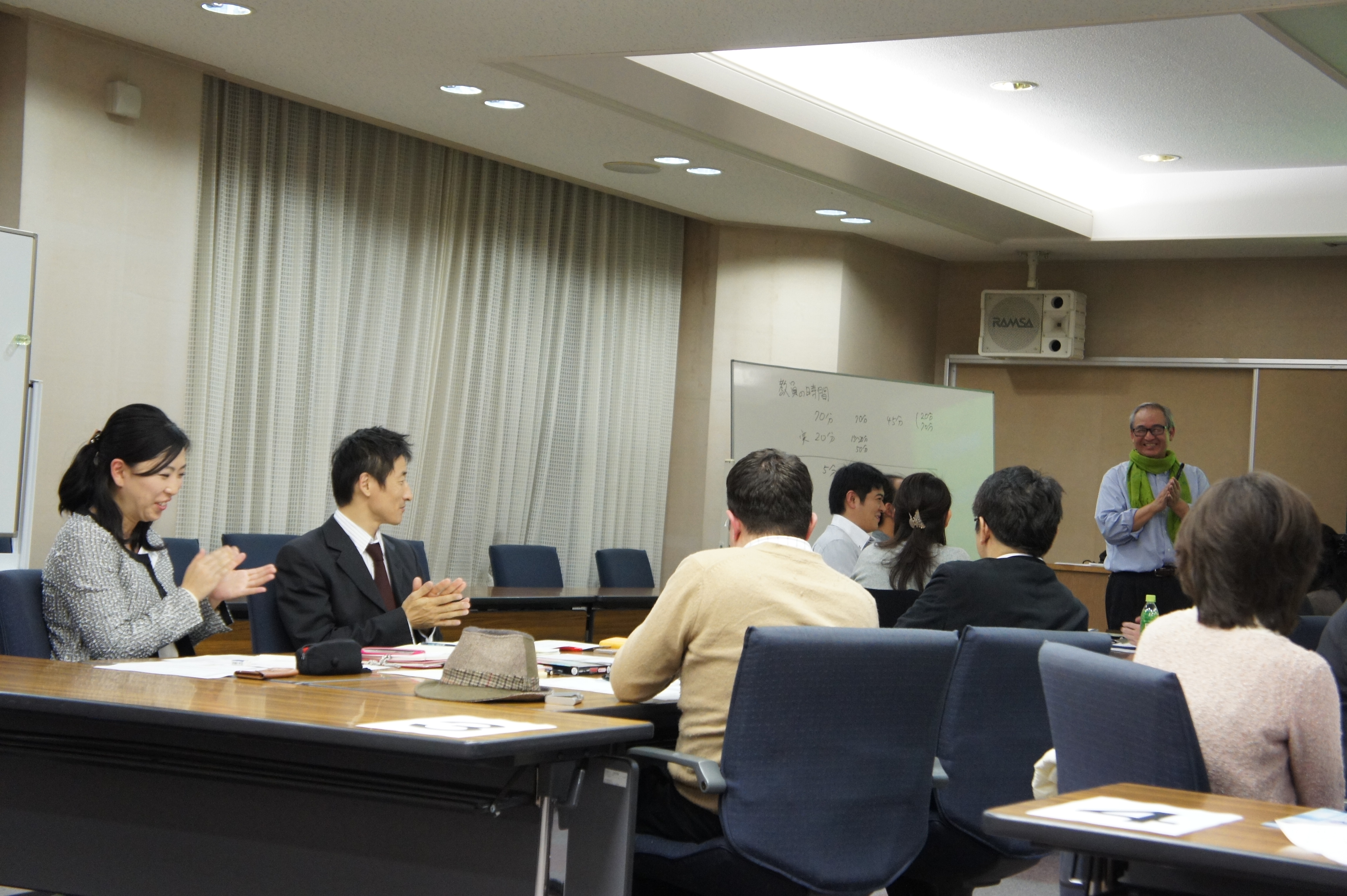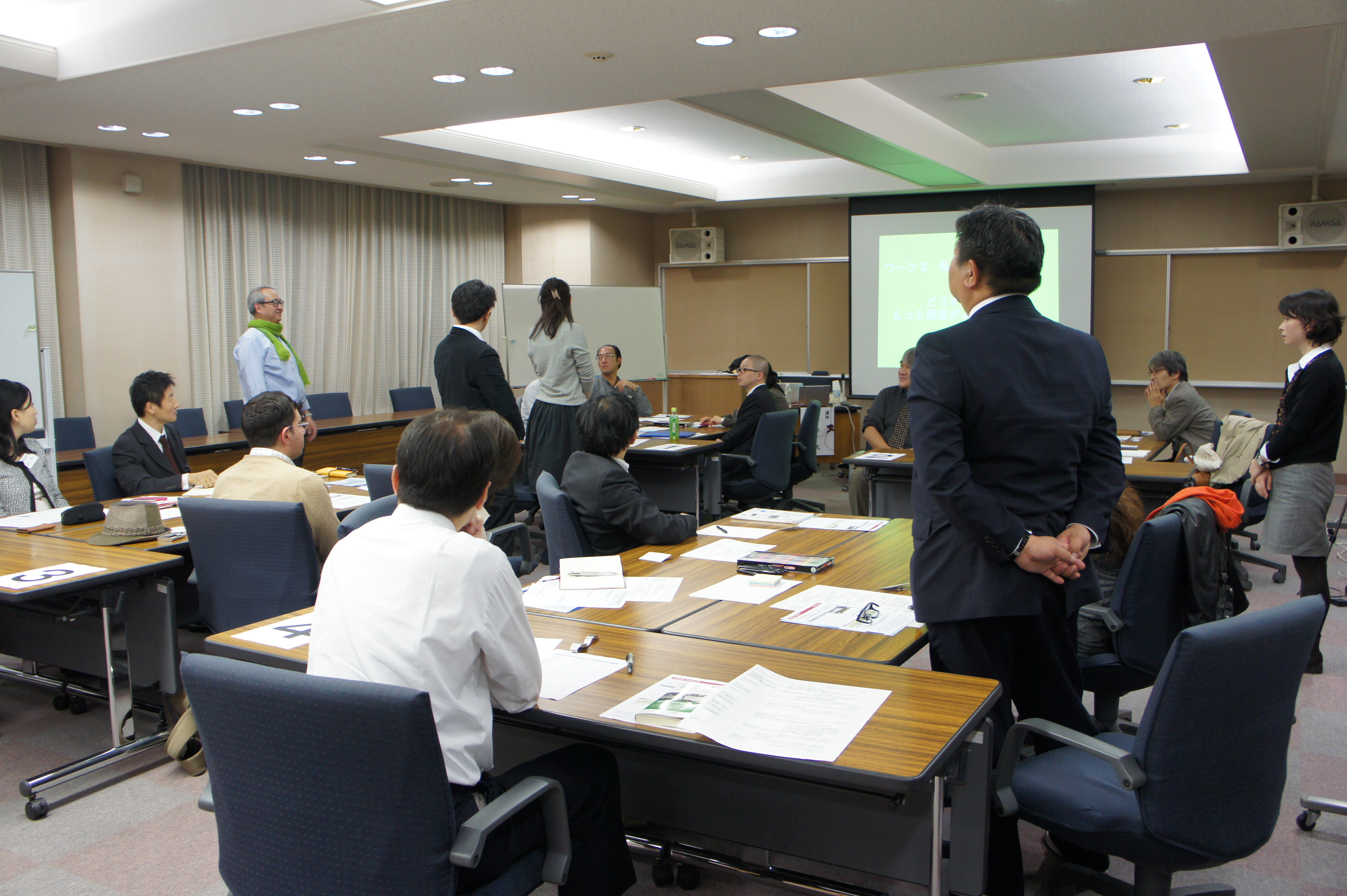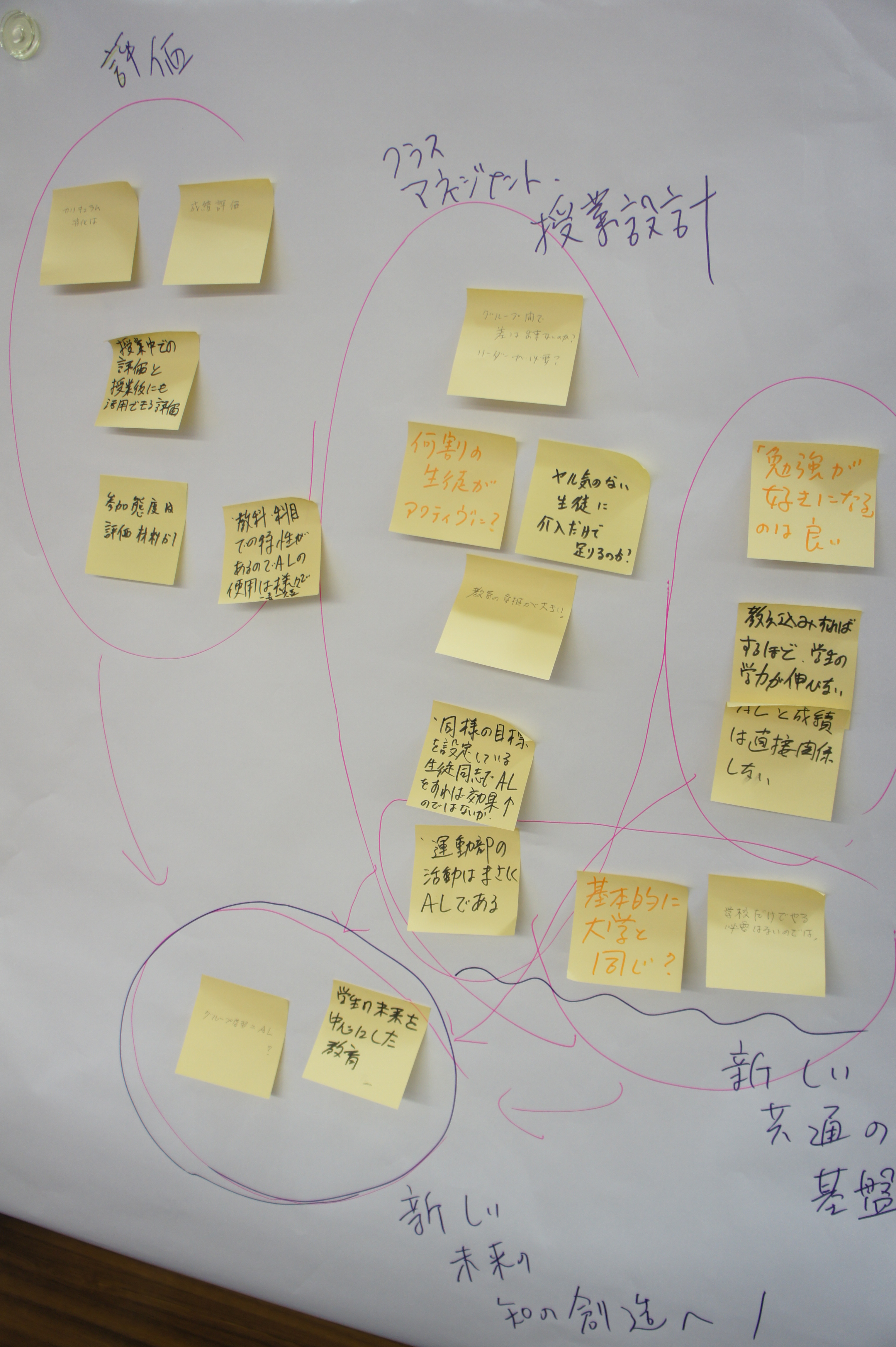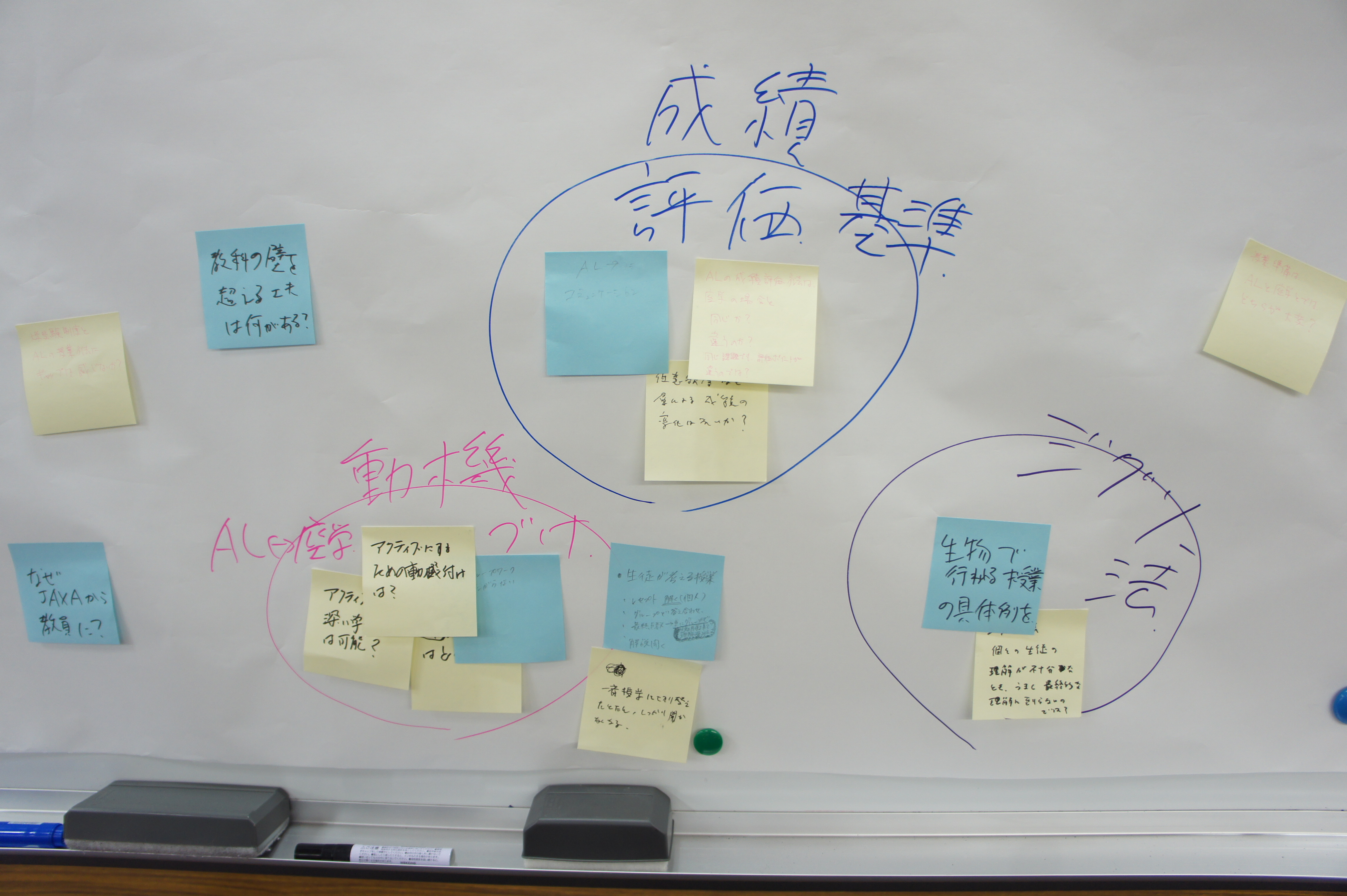- Event details (2 sessions in total / common to both sessions)
- Implementation Report
- Contact Information
Event details (2 sessions in total / common to both sessions)
Theme: “Experience! Learning mechanisms and their mechanisms”
We will introduce the mechanisms and mechanisms of “active learning,” a learning method that is currently attracting attention, based on specific practical examples.
Why not try “active learning” in your own program?
| venue | Ikenobo Junior College Senshinkan 6F Conference Room 1 | |
| Sponsored by | Kyoto University Consortium, a public interest incorporated foundation | |
| subject | University faculty and university personnel interested in educational activities at universities | |
| Participation fee | Member universities | free |
| Non-member universities | 1,000 yen | |
| Capacity | 30 people (first come, first served) | |
Part 1: The Modern Form of “Learning” in High Schools – What Active Learning Classes Have Students Experienced?
| schedule | Friday, November 20, 2015, 6:00 PM – 8:00 PM (Registration begins at 5:30 PM) |
| Lecturer | Tatsuya Ijiri (Teacher, Kyoto Municipal Horikawa High School) |
| Application Deadline | Monday, November 16, 2015 |
| Contents | He was a speaker at Kawaijuku’s “Kawaijuku Educational Research Forum 2014.” He will introduce an example of active learning being implemented at Horikawa High School. In addition to learning about examples of active learning classes being implemented in modern high schools, he will also learn about the current state of learning for students who will soon be entering university. |
Part 2: The difference between active learning and lecture-style classes – From the perspective of open learning at universities
| schedule | Friday, December 11, 2015, 6:00 PM – 8:00 PM (Registration begins at 5:30 PM) |
| Lecturer | Yoichi Tsutsui (Professor, Kyoto Seika University) |
| Application Deadline | Monday, December 7, 2015 |
| Contents | In the class “Introduction to Group Work,” which aims to improve interpersonal communication through learning group work techniques, participants will learn practical insights and actually experience several group work projects that encourage open and flat learning. |
[Download the flyer for the University Education Power Up Seminar here]
Implementation Report
Report on the 2nd University Education Power-Up Seminar
On Friday, December 11th, the University Consortium Kyoto held its second university education power-up seminar, “The difference between active learning and lecture-style classes: from the perspective of open learning at universities.”
On the day, 15 participants from member and non-member universities were welcomed, and after a presentation by Professor Yoichi Tsutsui of Kyoto Seika University, they engaged in group work.
The seminar was highly practical, with participants watching videos prepared as part of a flipped classroom and taking a confirmation test beforehand. According to Professor Tsutsui, active learning will become commonplace in the near future, and university-wide efforts are essential. He said that there will be a shift from “teaching” to “self-learning,” and that the university must be open to society.
Finally, in the seminar survey, all participants responded that they were “very satisfied” or “satisfied,” making it an extremely well-received study session. Other comments included, “I learned specific methods for managing group work. I was able to experience flipped classrooms firsthand,” and “The experience of sharing individual thoughts with the group and presenting them as group opinions was beneficial.”
Report on the 1st University Education Power-Up Seminar
On Friday, November 20th, the University Consortium Kyoto held its first university education power-up seminar, “Today’s form of ‘learning’ in high schools: What active learning classes have students experienced?”
On the day, 14 participants from member and non-member universities were welcomed, and after the lecturer gave a talk, they were divided into four tables and engaged in group work.
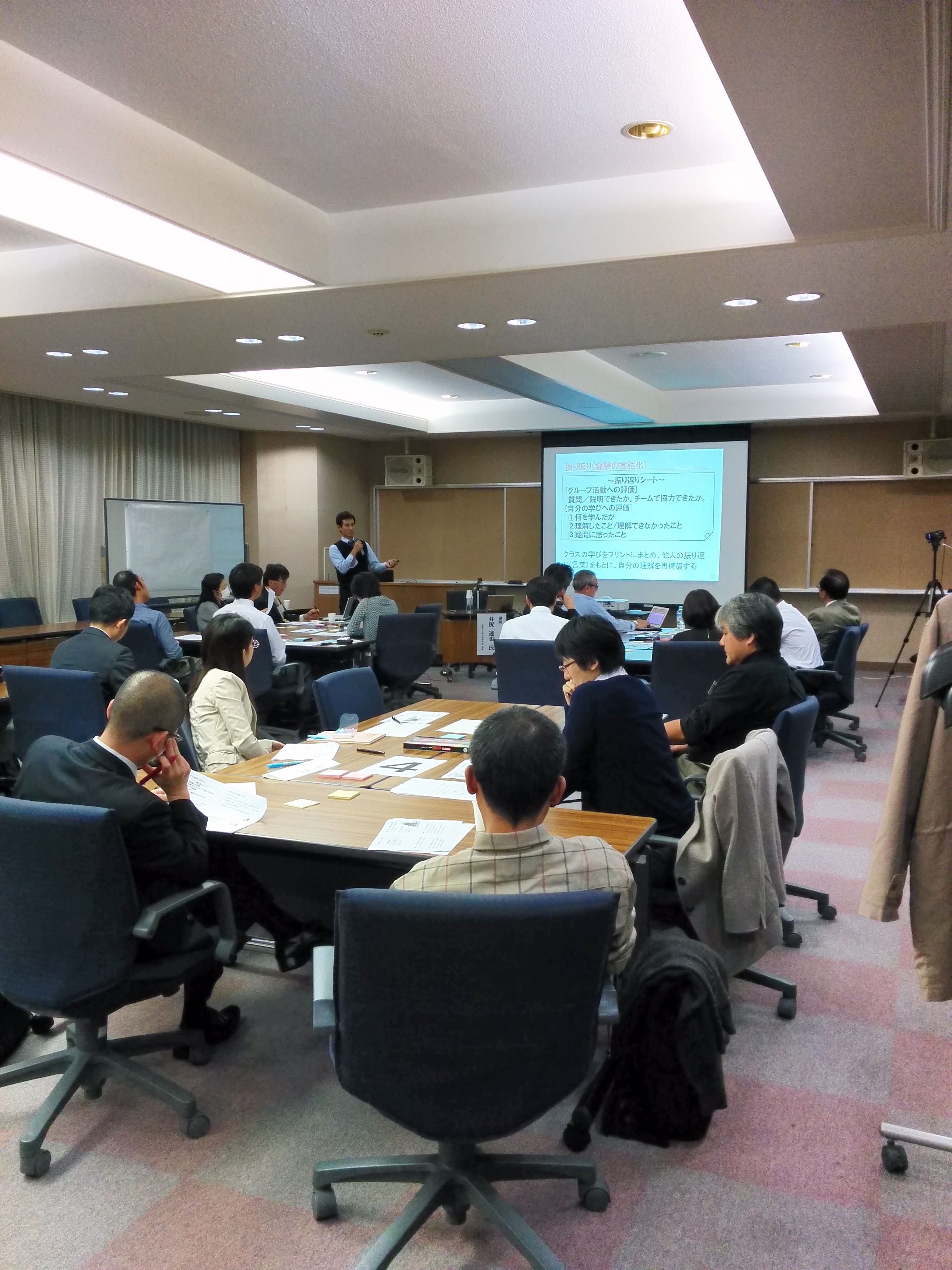
He spoke about what prompted him to introduce active learning in his high school and his actual teaching methods. While he received positive feedback from students, such as “I was able to find my place in the class” and “The conversation continued after class,” he also mentioned that some teachers were indifferent or skeptical, suggesting that he is still conducting lessons through trial and error.
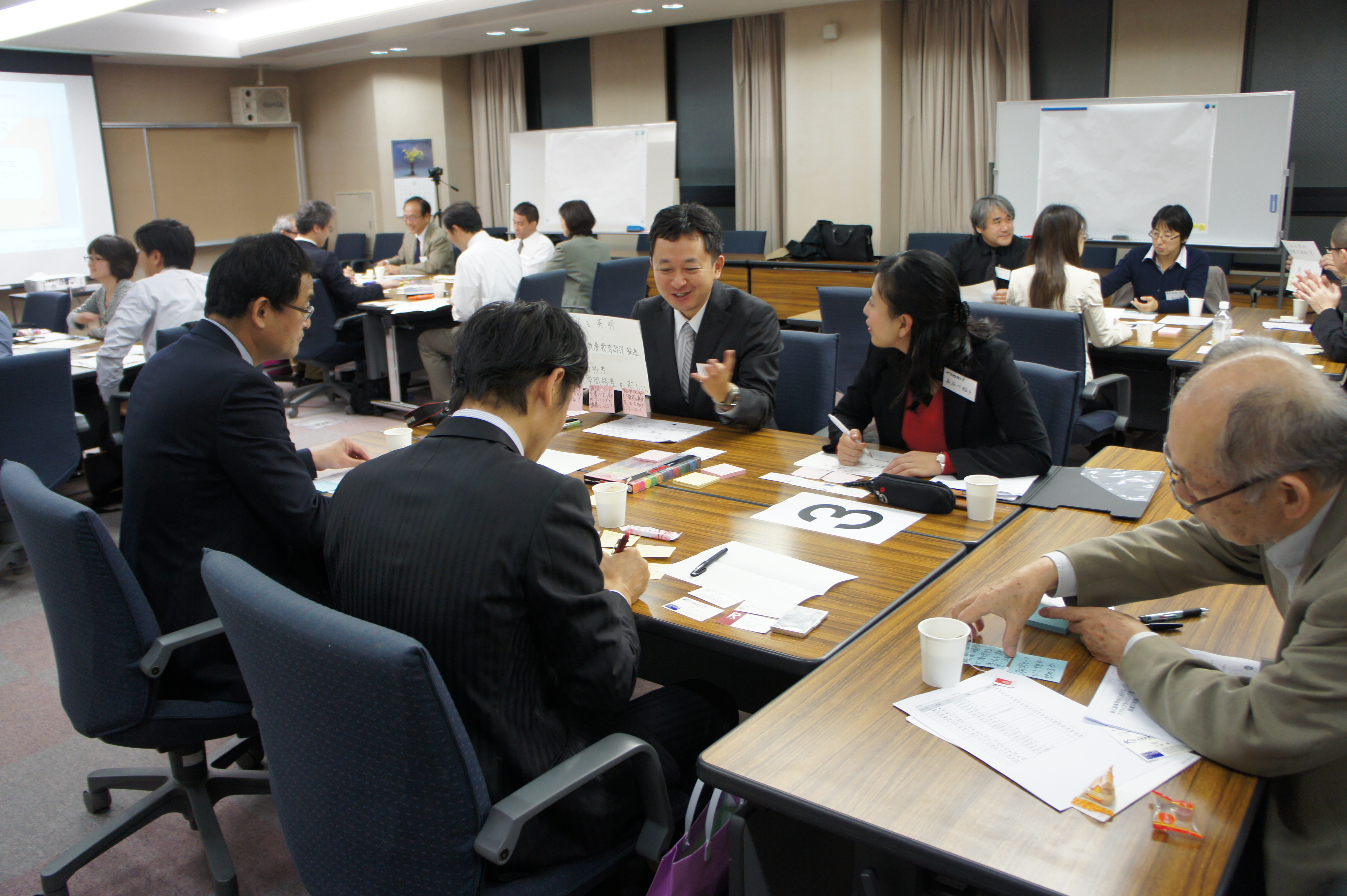
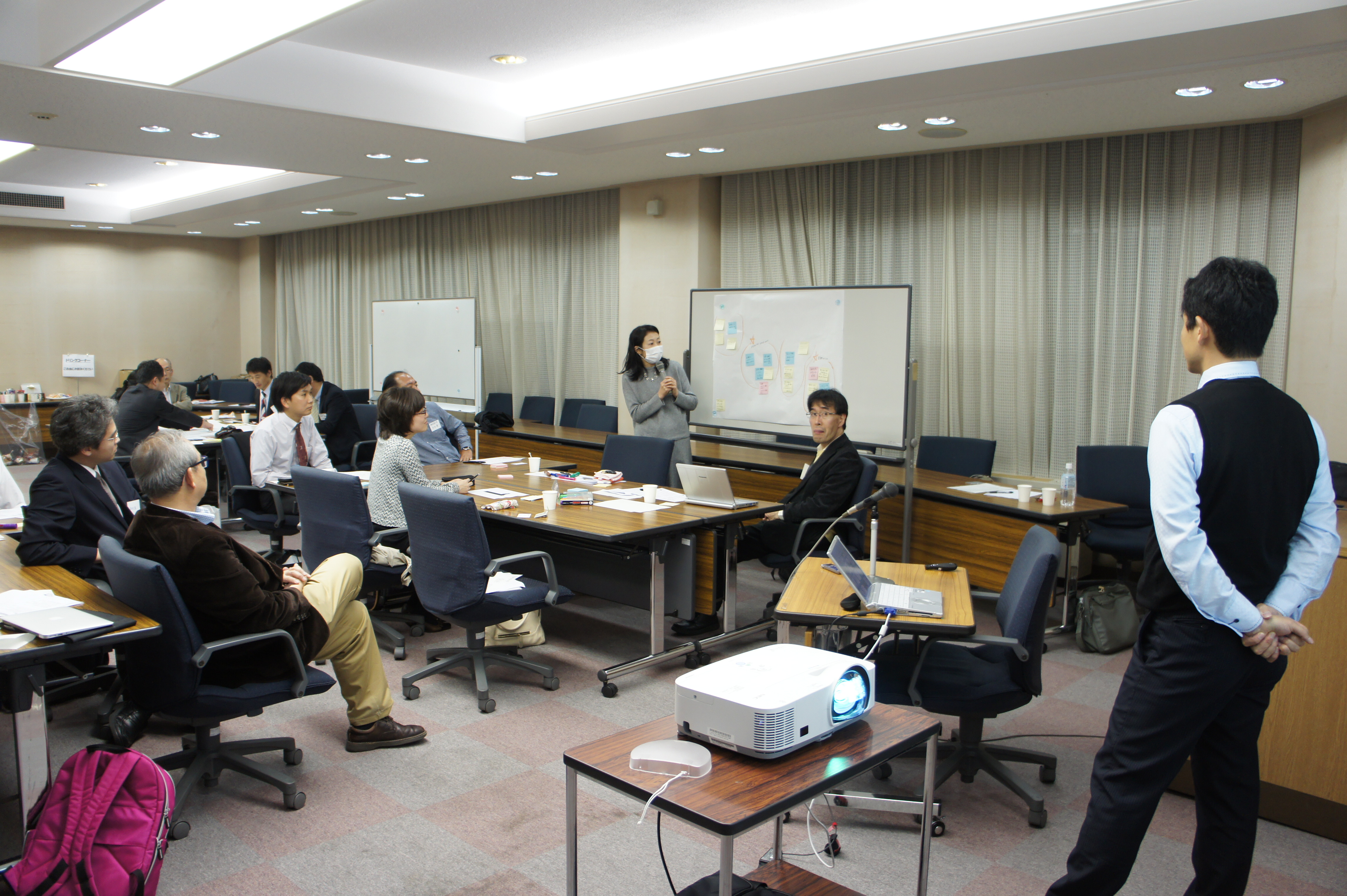
Finally, in the survey results for this seminar, over 90% of participants answered that they were “very satisfied” or “satisfied,” making it a well-received study session. Other comments included, “I was impressed that the seminar started by considering the meanings of ‘learning’ and ‘thinking’ that students have,” and “I got a lot of hints for promoting independent learning among students.”
Contact Information
Consortium of Universities Kyoto, Public Interest Foundation, FD Projects,
TEL: 075-353-9163, FAX: 075-353-9101,
Campus Plaza Kyoto, Nishinotoin-dori Shiokoji-sagaru, Shimogyo-ku, Kyoto 600-8216
*Reception hours: Tuesday to Saturday, 9:00-17:00 (excluding New Year’s holidays)














